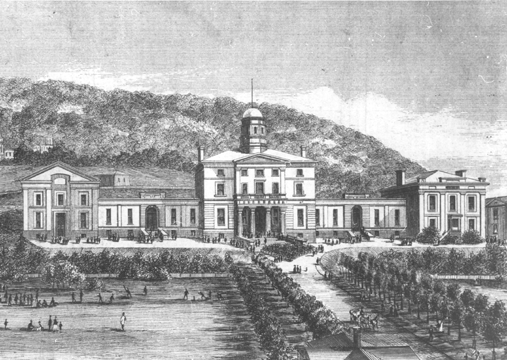Following the McGill administration’s decision to list POLI 339 on Minerva, the Arts Undergraduate Society (AUS) claimed that it was working to revoke the move during its Legislative Council meeting on Mar. 20. Additionally, the AUS Equity Commissioners presented their 2018 Frosh Report, which overviews the accessibility and safety of the most receny Arts Frosh.
POLI 339 now being offered on Minerva, despite vote dispute
POLI 399, the controversial Political Science course that spurred debate in AUS Council sessions and led to the resignation of two Executive Committee resignations, is officially considered approved by the McGill administration. Originally, the course fee was turned down by a majority vote during AUS Legislative Council. However, executives held an “emergency vote” over Facebook Messenger, approving the course fee without calling a Legislative Council session. The course approval then went to the Students’ Society of McGill University (SSMU) Board of Directors (BoG), which ratified it and sent it to the Deputy Provost Student Life and Learning (DPSLL). Soon after the emergency vote was announced, though, the approval was put on hold and Secretary General Sophie Zhao and Deputy Secretary General Nathan Mendel began an investigation into the constitutionality of the vote.
After Zhao and Mendel’s investigation concluded that the vote was unconstitutional, POLI 339 was unfrozen, allowing DPSLL to approve the course and post it on Minerva for registration. According to AUS President Maria Thomas, the AUS is working to overturn the class’ approval, but the logistics of doing so are unclear. SSMU President Tre Mansdoerfer does not believe AUS has the ability to do so after the course has already been opened for registration by the Deputy Provost.
Frosh Report Extends Beyond Basic Safety Concerns
Equity Commissioners Maheen Akter, Meera Raman, and Evren Sezgin formed a committee to observe Arts Frosh events’ compliance with equity concerns. Their report summarizes and analyzes their observations from each event, and includes a series of recommendations for Frosh organizers.
The Equity Commissioners noticed that the inaccessibility of Frosh venues continues to be a problem. Most of the bars and clubs which Frosh events take place at have multiple floors, many stairs, and no elevator access, while overcrowded boat cruises may also be cause for accessibility-related concerns.
“AUS Frosh [should] seek more event venues with limited or no separated platforms,” Raman said.
The Equity Commissioners also alleged that Frosh leaders and Orientation-staff (O-staff) were negligent with their responsibilities. They cited examples from the “Explore Camp” portion of Frosh, during which groups walked to restaurants, bars, and clubs around Montreal.
“There was excessive drinking by O-staff and Frosh leaders,” Sezgin said. “Most of the people that were drunk and unable to perform their jobs were employees of AUS, mainly Frosh leaders and O-staff that were there to [do their jobs] and work on harm-reductive [tasks] which they weren’t able to do due to their excessive drinking.”
The Commissioners also noticed that staff drank excessively during the inter-faculty events.
“O-staffers were so drunk [at L’Olympia] that they [were] at one point ushering Froshies into the club and screaming ‘shots,’” Akter said. “Frosh leaders were also getting bottle service and we wondered where the money for this came from.”
Overall, Sezgin added that they tried to address the intrinsic problems of Frosh.
“We really wanted to make [clear] this year that equity isn’t just [about] water and stairs,” Sezgin said. “It’s more about […] interpersonal relationships and positions of power and the different ways in which that perpetuates cultures of Frosh that are flawed and make Frosh a bad environment.”
In pursuit of this, the Commissioners made recommendations about Frosh leaders relating to power dynamics and creating a harm-reductive environment.
“We also recommend that AUS address the various questions around the misuse of power,” Sezgin said. “[They should also address the] failure to acknowledge […] the power dynamic [between…] the Frosh leader and the Froshie. We recommend that during their training, Frosh leaders and O-staff must understand the AUS’s expectations of them which should involve educating employees on creating a harm-reductive environment.”
The Commissioners also recognized the logistical challenge of executing Frosh, and stated that, despite the concerns they raised, they felt that Frosh staff did well overall.








